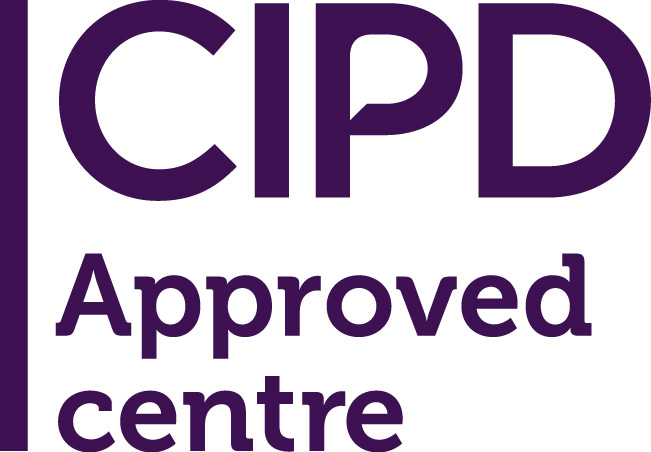MSc International Human Resource Management
ApplyKey facts
- Start date: September
- Accreditation: Professional Membership of the Chartered Institute of Personnel & Development at Associate Member, Chartered Member or Chartered Fellow level
- Study mode and duration: 12 months full-time
Study with us
- employability is at the heart of the MSc International Human Resource Management
- our one-year full time programme helps you understand how multinational organisations can best mobilise a culturally-diverse workforce and prepare you for a HR career in global organisations
- develop understanding of how and why human resource polices and practices differ across the world
- gain hands-on experience tackling real HR challenges as part of the course through on-site and virtual projects
- our guest speaker series features HR professionals to share their experiences
- network through the online CIPD Student Conference, connecting with industry leaders and fellow HR professionals
- funded places available to attend the HR Network Conference and Exhibition annually, providing an opportunity to learn from leading HR experts
- become a CIPD Associate Member upon graduation – our Business Skills module, aligned with the CIPD Profession Map, prepares you for a successful HR career
The Place of Useful Learning
UK University of the Year
Daily Mail University of the Year Awards 2026
Scottish University of the Year
The Sunday Times' Good University Guide 2026
Why this course?
This course will help you to develop an understanding of how and why human resource policies and practices differ across the world. You'll examine how international companies address these challenges.
It allows you to consider these issues critically and encourages you to think more practically about the skills required to manage in an international context.
The programme will provide you with a good understanding of theoretical debates and policy issues affecting human resource management in the global context.
You'll develop an awareness of the range of possible national and regional models for the management of human resources within the globalised economy.
You'll learn about the impact of local cultural and institutional influences on the practices of global organisations.
By the end of the programme, you'll have a good working knowledge of the skills required to manage in an international context, as well as an understanding of how multinational organisations can best mobilise a culturally diverse workforce.
Employability is at the centre of this programme. During the course of the year, you will have the opportunity to take advantage of multiple opportunities to engage with senior HR professionals both within the classroom and beyond. For example, the Department subsidises attendance at the CIPD Scotland Student Conference and the HR Network Scotland, with the latter event being attended by nearly 400 HR professionals.
Both formally, though the Business Skills module, and informally, we encourage you to reflect on your engagement with the HR profession as a means to enhance your understanding of the HR profession and what being an HR professional entails. Additionally, the Work-based Project which underpins the Integrated Dissertation and Research Report allows you to evidence your development as an aspiring HR professional. Taken together, these activities seek to significantly enhance your employability as you look to move into the HR profession.
The programme is delivered by the Department of Work, Employment & Organisation, which is home to the highly regarded Scottish Centre for Employment Research.
What our students think
Watch our video to find out what Khushboo Parikh thinks about the course.
Meet the Course Director
Course Director Dennis Nickson tells us more about this course.

Through the programme you'll:
Our MSc in International Human Resource Management will equip you with the skills and knowledge to become a senior people manager with deep knowledge of responsible and sustainable HR practice.
Through modules such as ‘Managing HR in Multinationals’ you'll learn about the unique challenges of managing people across cultures and territories in multinational enterprises. You'll gain an understanding – rooted in real-life case studies – of how national and regional differences shape organisations’ conceptualisation and application of HRM.
You'll also learn about how sustainable HRM practice can promote employee engagement and performance while considering organisations’ environmental and social responsibilities.
There's never been a more important time to understand how to manage people and workplaces effectively. HR management skills are crucial in all organisational contexts and in all senior leadership roles, but some people management practices are more transferable than others.
This programme - and especially modules such as Labour & Diversity in Global Context - will allow you to build expertise in the changing world of work comparing different regional, national and local contexts.
You'll also gain an understanding of:
- how digital innovation and the rise of AI is transforming the workplace, comparing experiences and impacts in different global markets
- how ‘people analytics’ can inform better HR management decision making in multinational organisations
The MSc benefits from the University’s extensive network of global partnerships. You'll engage in live research projects, working closely with international organisations to solve real-life HR and workplace challenges.
You'll also learn from – and network with – senior international HR leaders as part of our People Management Masterclass series. Previous keynote speakers in our Masterclasses include senior people managers at Morgan Stanley and Bain Capital, among other major multinational businesses.
You'll gain access to a globally respected qualification, accredited by the Chartered Institute for Personnel and Development (CIPD), and as a member of the CIPD join a global network of more than 160,000 HR professionals.
The programme fosters a culture of critical reflection and collaborative problem solving. In a rapidly changing and volatile workplace environment, we need to understand how the shifting global and national context shapes people management.
Our ‘Comparative Employment Relations’ module will help you to understand how different legal, institutional and cultural norms influence workplace practice in different territories. You will learn how to evaluate the evidence of ‘what works’ in different contexts in terms of fostering employee engagement, wellbeing and performance.
Our ‘Business Skills for HRM’ module will help you to build a business case for investments in progressive workplace practices, rooted in real life international case studies. You're encouraged to be bold in your thinking, ambitious in your goals, and collaborative in your approach.
The MSc has has been developed and delivered by academics committed to workplace innovation. Our research and teaching is rooted in real world experiences of engaging with international organisations as they seek to harness innovation and empower their people to drive transformational change.
You'll also have access to Strathclyde Inspire, a unique sector leading initiative that supports and encourages all forms of entrepreneurship. This initiative will provide you with opportunities to develop an entrepreneurial mindset and an enterprising approach to people management.
What you'll study
You will take a mix of core and elective classes. The curriculum provides a good balance between theory and practice. You'll undertake an introductory HRM class early in semester 1 to prepare you for the core classes which follow. This class covers HRM concepts and functions such as:
- the nature of HRM
- people and their role in organisations
- recruitment and selection of employees
- managing people in the workplace
- motivation and workplace relations
- rewards and benefits
- training and developing the workforce
Business Skills will help you develop and improve a range of definable skills that are pivotal to successful management practice and to effective leadership. The module also seeks to develop further more-specialised skills that are of particular significance to effective higher-level people management and provides opportunities for applied learning and continuous professional development.
Integrated dissertation and research project
During the second semester, you will produce an integrated dissertation and research report (IDRR) based on analysing a human resource issue in an organisation. You are encouraged to use your own contacts to gain access to an organisation, although assistance will be given by the department to offer you opportunities to access an organisation. For the IDRR you are encouraged to complete an 8-10 week placement within an organisation to understand the HR function within the business and to work with the organisation to identify an HR issue they currently face in order to carry out research and analysis to address this issue. During semester 2, no classes are timetabled on Thursdays and Fridays to allow you to focus on your IDRR.

Strathclyde Business School
Strathclyde Business School was founded in 1948 and is a pioneering, internationally renowned academic organisation with a reputation for research excellence.
One of four faculties forming the University of Strathclyde, SBS is a triple-accredited business school (AACSB, EQUIS and AMBA) and was the first business school in Scotland to achieve this accolade in 2004.
The Business School is home to seven subject departments and a number of specialist centres, all of which collaborate to provide a dynamic, fully-rounded and varied programme of specialist and cross-disciplinary courses.
Strathclyde Inspire
At Strathclyde, we live and breathe entrepreneurship. The University of Strathclyde started life as a place of useful learning, an institution that wanted to make a difference through dong things innovatively, boldly and socially oriented; this founding mission has never been more relevant. Today, we continue to nurture generations of influencers, innovators and industry leaders, empowering our staff, students and alumni to embrace entrepreneurship, transforming their own lives and the lives of others.
Strathclyde Inspire supports and encourages entrepreneurship in all its forms, so whether you want to be more entrepreneurial in your approach to life, business and society, have an idea for a business, or are considering commercialising your research, we will support you at every stage of your journey.
Strathclyde Careers Service
As a student at Strathclyde, you’ll have access to our award-winning Careers Service. Our experienced careers team are here to support you with your career goals at every step of your journey.
You’ll have access to our award-winning Careers Service, offering a full range of support, including:
- digital resources
- events calendar and exclusive job vacancies
- one-on-one career consultations
- The Mastering Your Career programme - designed specifically for MSc Business School students, combining workshops and digital tools to help you achieve your professional goals.
As a graduate of Strathclyde, you can come back and use the Careers Service for up to 5 years after graduation.
Triple-accredited business school

Rebecca MacKinnon
Choosing Strathclyde Business School quickly became the obvious choice, its accolades speaking for themselves. This was confirmed by friends who had previously studied here. They gave very quick and enthusiastic responses, telling me it would be the best decision and a great place to study. They weren’t wrong.

Lichen Yuan
Over the course of my studies, I have mastered the basic theoretical knowledge of management, economics, and human resource management, as well as the qualitative and quantitative methods of human resource management.

Xu Pei
What I gained most from the course was my way of critical thinking. The course encouraged and helped me to think critically about the direction and skills of human resource management in the international environment.

Bianca Ruba
I have gained employment in the social care sector as an HR assistant, which I thoroughly enjoy as I am gaining lots of experience, and I could not have done it without the skills and knowledge gained from this course!
Chartered Institute of Personnel and Development (CIPD)
The course allows you to work towards a professional level of membership of the Chartered Institute of Personnel and Development (CIPD). CIPD is the professional body for human resource and learning and development professionals. CIPD qualifications are valued by employers and are often a pre-requisite for HR roles. The MSc is an advanced level CIPD accredited programme aligned to the Profession Map standards and meets the educational requirements for Associate Member of CIPD (AssocCIPD). You're required to join the CIPD as a student member at the start of the course and renew your student membership during the academic year.
Accreditation
The Postgraduate Diploma (PgDip) stage of this programme is accredited as meeting the knowledge requirements for Professional Membership of the Chartered Institute of Personnel and Development (CIPD) at Associate Member, Chartered Member or Chartered Fellow level. The Department of Work, Employment & Organisation is a CIPD accredited programme provider.

Business Skills
This module equips students with essential business skills and competencies aligned with the CIPD Profession Map, preparing them for successful careers in HR. Combining theoretical knowledge with practical application, students will engage in networking opportunities at industry events and develop a reflective portfolio to assess their learning and professional growth. By embedding core HR behaviours and competencies, the module develops employability, continuous professional development and empowers students to drive positive change in the workplace.
Comparative Employment Relations
HRM in a Business Context
The aim of this module is to explore human resource management as both a strategic function and essential aspect of the management role, which creates value for both business organisations and stakeholders through the effective organisation of people and associated work systems. The module examines the business context and socio-economic drivers which shape corporate strategies and in turn, shape the strategic policies and practices of human resource management.
20 credits.
Labour & Diversity in a Global Context
Leading, Managing and Developing People
The aim of the module is to build upon core theories and strategic practices discussed in Semester One HR916 HRM in a Business Context, by critically examining both HRM and HRD practices for building and managing productive, effective, and healthy workers.
This module will utilise a central two-hour lecture to disseminate core knowledge and generate class discussion. On-line learning materials provide links to case studies and tasks which will be discussed in additional 1-hour seminars designed to engage student reflection on the class material.
Managing Human Resources in Multinationals
The aim of the class is to provide students with knowledge and critical understanding of the context and content of human resource management in a globalising economy by focusing on the activities of multinational companies.
The class will utilise a variety of teaching and learning methods. The emphasis will be on adopting a student-centred approach to teaching and learning to encourage a high degree of student-driven learning. Within the formal teaching time there will be a mix of lectures, tutorials, case study-based discussion and videos.
Research Methods
The aim of this class is to help students prepare for undertaking their Integrated Dissertation and Research Report. Sessions covered include research design, ethical consideration in research and analysing and presenting data.
Choose one:
Employee Reward
This module examines the interdisciplinary nature of reward management in an organisational context, presenting different theoretical and philosophical approaches to pay determination (e.g. economic, psychological, legal, and political) in relation to contemporary trends in employment policy and employee relations.
Reward management strategies that consider relative value, individual and collective contribution and labour markets will be examined. Specific subjects covered within this module include: pay and reward strategies within private, public and third sector organisations; legal constraints in determining pay structures; job analysis techniques; pay differentials for disadvantaged groups; and non-monetary reward. International comparisons will be made available as appropriate.
Learning and development in this class is designed to appeal to a range of learning styles, and to integrate argument, action, and reflection. This means that the format of the learning periods combines lecturing, group work on case studies and discussion. A variety of teaching methods will be adopted including formal lectures, guest lectures, individual reading, and applied exercises including group presentations.
People Resourcing
The aim of this class is to help students to understand People Resourcing issues within organisations and related concepts in order that they can become thinking practitioners in the field. General knowledge-based objectives include developing knowledge and understanding of a number of issues facing practitioners within organisations who are responsible for ensuring that the organisation is effectively resourced with people.
The learning methods will combine elements of formal presentations, individual reading, group discussions, and class feedback sessions. Learning and development in this class is designed to appeal to a range of learning styles, and to integrate argument, action, and reflection. This means that the format of the learning periods combines lecturing, group work on case studies and discussion.
Intensive classes offered at the Business School’s Spring School
These are a selection of Strathclyde Business School classes that are on offer for the duration of Spring Break that students on the course can select to take.
Please note that classes may differ from year to year depending on what departments have on offer. Find out more about the Spring School here.
Learning & teaching
Core and elective classes will be taught across two semesters running from September to December and January to March. Classes will be taught through a combination of lectures, workshops, interactive sessions, practical demonstrations and role-play. You'll also benefit from guest lectures given by distinguished HR professionals, and a business skills development programme. The integrated dissertation and research report is undertaken during the summer months.
Assessment
Classes are assessed by various methods, including essays, individual and group projects and final exams. Exams will take place at the end of each semester in December and April/May. You'll also keep a CPD Record that describes all your important learning activities and experiences during the course. Submission of a satisfactory CPD Record is a requirement for completion of the course.
Chat to a student ambassador
Want to know more about what it’s like to be a Strathclyde Business School student at the University of Strathclyde? A selection of our current students are here to help!
Our Unibuddy ambassadors can answer all the questions you may have about their course experiences and studying at Strathclyde, along with offering insight into life in Glasgow and Scotland.
Entry requirements
| Academic requirements | Minimum second-class honours degree or overseas equivalent (view the entry requirements for your country) in any subject. |
|---|---|
| English language requirements | Students whose first language is not English must have a minimum of 6.5 IELTS score, with no individual score lower than 5.5. Get more information about the English language requirements for studying at Strathclyde. |
Please note that achieving the minimum entry requirements does not guarantee acceptance on the course.
Pre-Masters preparation course
The Pre-Masters Programme is a preparation course held at the University of Strathclyde International Study Centre, for international students (non-UK/Ireland) who do not meet the academic entry requirements for a Masters degree at University of Strathclyde.
Upon successful completion, you'll be able to progress to this degree course at the University of Strathclyde.
Fees & funding
All fees quoted are for full-time courses and per academic year unless stated otherwise.
Fees may be subject to updates to maintain accuracy. Tuition fees will be notified in your offer letter.
All fees are in £ sterling, unless otherwise stated, and may be subject to revision.
Annual revision of fees
Students on programmes of study of more than one year (or studying standalone modules) should be aware that the majority of fees will increase annually.
The University will take a range of factors into account, including, but not limited to, UK inflation, changes in delivery costs and changes in Scottish and/or UK Government funding. Changes in fees will be published on the University website in October each year for the following year of study and any annual increase will be capped at a maximum of 10% per year. This cap will apply to fees from 2026/27 onwards, which will not increase by more than 10% from the previous year for continuing students.
| Scotland | £15,050 |
|---|---|
| England, Wales & Northern Ireland | £15,050 All home fee status candidates who are given an offer of study on this programme, will be automatically offered our SBS Masters scholarship for Home/UK students. |
| Republic of Ireland |
If you are an Irish citizen and have been ordinary resident in the Republic of Ireland for the three years prior to the relevant date, and will be coming to Scotland for Educational purposes only, you will meet the criteria of England, Wales & Northern Ireland fee status. For more information and advice on tuition fee status, you can visit the UKCISA - International student advice and guidance - Scotland: fee status webpage. Find out more about the University of Strathclyde's fee assessments process. |
| International | £30,950 All international candidates who are given an offer of study on this programme, will be automatically offered our SBS International Masters scholarship, which is £8,000 for this programme. A separate application is required for our higher value Dean’s Excellence Award. |
| Additional costs | Graduation gown hire. Chartered Institute of Personnel and Development Membership PGDip/MSc Human Resource Management and International Human Resource Management is accredited by the Chartered Institute of Personnel and Development (CIPD) and students wishing to achieve Associate Membership of CIPD on completion of the course are required to join as a student member during their studies. This is not mandatory for passing the course but is required by CIPD to achieve membership update on passing the course. The cost for 2022/2023 is a £40 joining fee plus a £98 member fee (dependent on when you join in the year, CIPD offer different membership fee options). Students pay the member fee when they start in September and when they renew their membership fee in July. (information correct 26/04/2021) |
| Available scholarships | Take a look at our Business School scholarships. |
| Visa & immigration | International students may have associated visa and immigration costs. Please see student visa guidance for more information. |
Please note: the fees shown are annual and may be subject to an increase each year. Find out more about fees.
How can I fund my course?
Scottish postgraduate students
Scottish postgraduate students may be able to apply for support from the Student Awards Agency Scotland (SAAS). The support is in the form of a tuition fee loan and for eligible students, a living cost loan. Find out more about the support and how to apply.
Don’t forget to check our scholarship search for more help with fees and funding.
Students coming from England
Students ordinarily resident in England may be to apply for postgraduate support from Student Finance England. The support is a loan of up to £10,280 which can be used for both tuition fees and living costs. Find out more about the support and how to apply.
Don’t forget to check our scholarship search for more help with fees and funding.
Students coming from Wales
Students ordinarily resident in Wales may be to apply for postgraduate support from Student Finance Wales. The support is a loan of up to £10,280 which can be used for both tuition fees and living costs. Find out more about the support and how to apply.
Don’t forget to check our scholarship search for more help with fees and funding.
Students coming from Northern Ireland
Postgraduate students who are ordinarily resident in Northern Ireland may be able to apply for support from Student Finance Northern Ireland. The support is a tuition fee loan of up to £5,500. Find out more about the support and how to apply.
Don’t forget to check our scholarship search for more help with fees and funding.
International students
We've a large range of scholarships available to help you fund your studies. Check our scholarship search for more help with fees and funding.
International students
We've a thriving international community with students coming here to study from over 140 countries across the world. Find out all you need to know about studying in Glasgow at Strathclyde and hear from students about their experiences.

Careers
As a graduate of this programme, you'll be well placed to work for organisations including global multinationals, government bodies, and global non-governmental organisations (e.g. International Labour Organisation (ILO) and UNICEF). In recent years, graduates have accessed a range of jobs with a variety of organisations and recent graduate destinations and jobs have included:
- Head of Human Resources at Reiches, Austria
- HR Advisor at Aberdeen Standard Investments
- Business Analyst at Calaisco, Berlin
- Principal Recruiter at ADAMAR, Indonesia
- HR Executive at Clintec Pharmacetucials
- Doctoral Researcher at University of Strathclyde
Glasgow is Scotland's biggest & most cosmopolitan city
Our campus is based right in the very heart of Glasgow. We're in the city centre, next to the Merchant City, both of which are great locations for sightseeing, shopping and socialising alongside your studies.
Apply
For information and guidance on the application process, take a look at our How to Apply web page.
Start date: Sep 2026
International Human Resource Management
Contact us
SBS Postgraduate Admissions
Telephone: +44 (0)141 553 6105 / +44 (0)141 553 6116
Email: sbs.admissions@strath.ac.uk
Strathclyde Business School, University of Strathclyde
199 Cathedral Street
Glasgow
G4 0QU
Have you considered?
We've a range of postgraduate taught and Masters courses similar to this which may also be of interest.




